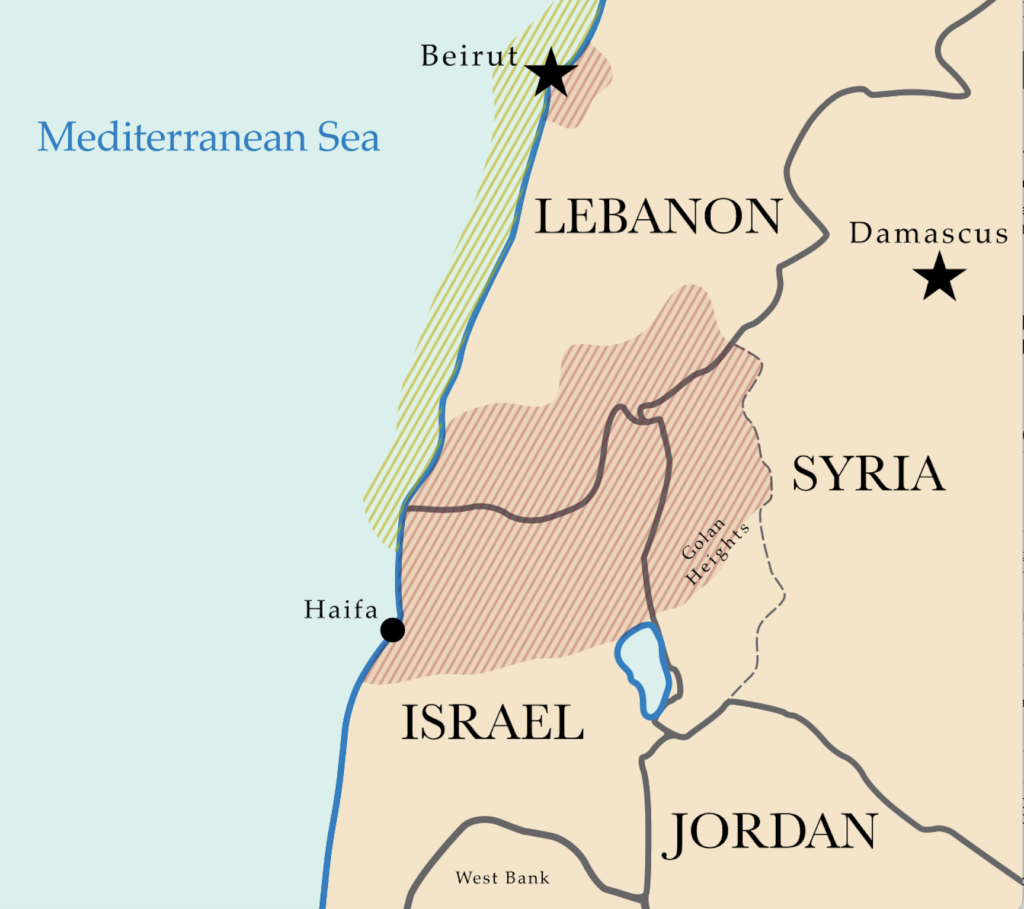Israel’s Threat of Taking Lebanon “Back to the stone-age” Could Prove to be Suicidal

By: Ghassan Rubeiz / Arab America Contributing Writer
In expanding the war zone into Lebanon, Israel puts itself in great danger.
Israel’s Defense Minister Yoav Gallant has warned that his military is capable of taking Lebanon “back to the stone age”. Prime Minister Benjamin Netanyahu and other Israeli leaders have also threatened to turn Lebanon into “another Gaza” or make it “disappear”.
Such vindictive rhetoric may deter some groups in Lebanon, but there is no evidence that they have eased the escalating conflict between Lebanon’s Hezbollah and the Israel Defense Forces. The risk of an all-out war between Israel and its neighbors, near and far, has driven Arab mediators, the US, the EU, and the United Nations to intensify the indirect negotiations. The goals of these talks are to reduce the tension on the Lebanon-Israel border; end the war in Gaza; return Israeli hostages; release Palestinian prisoners; and allow border evacuees to go home.
By continuing to threaten to wipe Lebanon off the map, Israel’s leaders have shown that they have not learned much from their failure to resolve the crisis in Gaza. Not only are they underestimating Hezbollah, they are also ignoring the long-term risks to both border security and Israeli domestic unity.
Occupation mobilizes resistance. Nine months of Israeli air strikes, which have killed over 38,000 Gazans, stymied a generation of children, wounded over 80,000, and destroyed nearly the entire infrastructure of Gaza, have failed to destroy the will of the people. Armies can be defeated by force, but ideas can only be defeated by other ideas. Should Israel wage a full-blown war on Hezbollah, what is happening in Gaza will happen in Lebanon.
Hezbollah is much stronger than Hamas. It is also far stronger than it was in 2006, when it fought the Israeli army to a draw over 34 days. Attacking it would put sizeable portions of the Upper Galilee at risk of attack. Hezbollah could be weakened militarily, but at a tremendous cost in lives and resources, for all sides. The political vacuum resulting from the likely disappearance of the Lebanese state could encourage the resurgence of Islamist groups in Lebanon and neighboring Syria, which Hezbollah currently holds at bay. Israel would be facing a host of new and old resistance or terrorist groups on its borders with Gaza, Lebanon, Syria, and Jordan. The Gaza war is already bolstering recruitment among terrorist organizations. Israel’s other adversaries, such as Iran and the Houthis, would also be likely to intervene. U.S. support of Israel in such a regional war would make the outcome of such conflagration highly dangerous and unpredictable.
But there would be domestic risks to Israel as well. Israel can manage to deal with external challenges only if it remains domestically united over a set of core values. Israelis have ignored serious ideological divisions to face down Hamas after October 7th. But Gaza’s threats have not been dealt with adequately; rather, the war has only increased the threats to Israel. As Israel’s messianic militants gain dominance in Israel’s power structure, secular and liberal communities could become increasingly alienated, and a war with Lebanon could tip Israel into civil war.
To survive, Israel cannot afford a single military defeat. In a less risky scenario, Israel would be inviting more challenges by defeating Hezbollah and Hamas militarily but losing the war of ideas. But what happens if Israel faces a defeat in taking the war to Lebanon, Syria, Iran, Iraq, and Yemen? Israel faces its own destruction, in attempting to bomb Lebanon “back to the stone age.”
Ghassan Rubeiz is the former Middle East Secretary of the World Council of Churches. Earlier he taught psychology and social work in his country of birth, Lebanon, and later in the United States, where he currently lives. For the past twenty years, he has contributed to political commentary and delivered occasional public talks on subjects related to peace, justice, and interfaith. You can reach him at rubeizg@gmail.com
The views and opinions expressed in this article are those of the author and do not necessarily reflect the position of Arab America. The reproduction of this article is permissible with proper credit to Arab America and the author.
Check out our Blog here!








